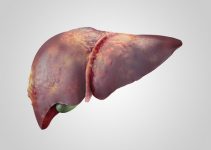Proctalgia Fugax (PF) is a digestive disorder marked by intermittent but severe pain in the rectum. If you are experiencing such symptoms, read on to know whether you are actually having this condition as well as about its various causes, symptoms and treatment options.
What is Proctalgia Fugax?
Page Contents
- 1 What is Proctalgia Fugax?
- 2 Proctalgia Fugax Other Names
- 3 Proctalgia Fugax Causes
- 4 Proctalgia Fugax Symptoms
- 5 Proctalgia Fugax Diagnosis
- 6 Proctalgia Fugax Differential Diagnosis
- 7 Proctalgia Fugax Management and Relief
- 8 Proctalgia Fugax Treatment and Medications
- 9 Proctalgia Fugax Prognosis
- 10 Proctalgia Fugax and Pregnancy
- 11 Proctalgia Fugax Risk Factors
- 12 Proctalgia Fugax Prevention
It is a disease characterized by occasional but severe pain, uneasiness and pressure in the sacrum, rectum and coccyx regions. The symptoms tend to worsen when a patient is in a sitting position.
Proctalgia Fugax Other Names
The condition is known by various other names, such as:
- Levator Ani Syndrome
- Coccygodynia
- Levator Ani Spasm Syndrome
- Proctodynia
It is also referred to as “Anal Cold”.
Proctalgia Fugax Causes
The exact cause of this condition is unknown. However, one or more of the following conditions is suspected to result in this syndrome:
Picture 1 – Proctalgia Fugax
- Pelvic floor (LAS) muscle spasm
- Anal sphincter (PF) muscle spasm
- Levator ani muscle spasm
- Pubococcygeus muscle cramp
- Low-fiber diet
- Pudendal nerve neuralgia
PF, much like constipation, is supposed to occur due to genetic factors. The condition is sometimes associated with IBS (Irritable Bowel Syndrome). This is due to the fact that the two muscles impacted in these disorders are anatomically close which makes them possible to co-exist. Both disorders are supposed to arise due to the same underlying malfunctions.
Proctalgia Fugax Symptoms
The symptoms of this condition may vary with its severity. Some of the common signs of the syndrome are:
- Pain, which may be initiated by urination and defecation
- Sharp pain, which often makes patients wake up from deep and sound sleep
- A short episode of pain, which does not usually last more than a few minutes
- Sweating, palpitation and even fainting, caused by severe pain
- Bowel movements, not resulting from defecation
PF pain mainly occurs during mid-night and lasts for short periods of time. This pain is similar to that of another condition known as Levator Ani Syndrome, which causes severe aching that lasts for over 20 minutes. According to a 2007 study, 33 percent of 1809 patients with PF suffered the attacks during daytime while another 33% suffered during night time. Generally, people get affected by this syndrome when around 45 years old.
Patients do not experience any pain except for certain periods. Pain caused by PF may occur frequently before subsiding for a long time. In most cases, however, the pain is likely to reoccur after some time. A patient may suffer from multiple attacks as frequently as several times in one week. The pain lessens automatically within a short time after an attack. Sometime, the attacks may also be as rare as once in a year.
Sometimes, the blood pressure of a patient may drop suddenly during a painful episode, leading to loss of consciousness. Due to this reason, patients are suggested to lie down during an attack.
Proctalgia Fugax Diagnosis
The diagnosis of PF depends on the symptoms present in an individual. The condition is often misdiagnosed owing to the similarity of many of its symptoms with those of various other diseases. The tests done for diagnosing PF include:
- Examination of bony pelvis and axial spine
- Digital Rectal Examination (DRE)
- Complete Blood Count (CBC)
- Radiological test including CT Scan, MRI, Plain film X-ray and Ultrasound
- Transrectal Ultrasound
- Barium Enema X-Ray
- Sigmoidoscopy
- Nerve conduction
- Electromyelography (EMG)
- Anorectal Manography
- Cinedefography
Tenderness in the levator muscle can be revealed by a rectal examination. Pain tends to increase when the muscle is digitally pressed. Doctors should check for any signs of anemia in case there is a chance of gastrointestinal bleeding.
Proctalgia Fugax Differential Diagnosis
The differential diagnosis of this disorder involves distinguishing it from other conditions that are likely to be present along with PF, such as:
- Irritable Bowel Syndrome
- Ulcerative Colitis or Crohn’s Disease
- Solitary chronic rectal ulcer
- Hemorrhoids ± Thrombosis
- Rectal Carcinoma
- Rectal foreign body
- Perirectal abscess
- Proctitis
- Diverticular Disease
- Pruritus ani
- Rectal Prolapse
- Retrorectal cysts
- Prostatitis
- Hereditary Anal Sphincter Myopathy
- Condylomata Acuminate
- Bilateral Internal Iliac Artery Occlusion
- Coccygodynia
- Testicular Carcinoma
- Cystitis
Proctalgia Fugax Management and Relief
Once the presence of PF has been confirmed in a person, various treatment options can be used for its management. In many cases, reassurance helps a patient fight the pain better. In most cases, the attacks are very transient and require no specific medications. Patients should perform relaxation exercises regularly to reduce anxiety and stress which may act as trigger factors for the pain.
Proctalgia Fugax Treatment and Medications
Warm baths, enemas, fiber supplements, analgesics, anti-inflammatories and various other medications are useful for treating PF. Relaxation techniques, including biofeedbacks, are also considered to be effective for its treatment. The traditional treatment options for PF comprise of warm baths and hot enemas. While sleeping, pressing an electric heating pad to the anal region can prevent the attacks.
Individuals suffering from frequent, severe and prolonged attacks may inhale salbutamol medications for fighting PF and reducing the duration of the pain. Botulinum toxin can also be used as a low dose diazepam and analgesic at bedtime to prevent occurrence of these attacks. The treatment of a PF patient should depend on the symptoms and the amount of pain experienced by him or her. Relaxation techniques are very useful in reassuring patients that the pain is not severe in nature.
Massaging the spastic muscle with some muscle relaxants may also help reduce stiffness and pain. If massaging the area is found to be ineffective, Electrogalvanic stimulation can be applied.
Proctalgia Fugax Prognosis
The prognosis depends on how long the individual has been suffering from the condition and how frequent the attacks are. But, proper treatment generally has a favorable outcome.
Proctalgia Fugax and Pregnancy
Picture 2 – Proctalgia Fugax Image
PF may also arise from an Ectopic pregnancy, a very rare condition characterized by gestation in some other part of the body other than the uterus. Ectopic pregnancy happens in only one out of hundred cases of maternity and is a general cause of bleeding during the first trimester.
Proctalgia Fugax Risk Factors
Old age and being female have been found to be the main risk factors for this digestive disease. Most PF patients have been found to be aged between 30 years and 60 years. Many researches show women to be more prone to the condition as compared to men. The symptoms of this disorder are likely to decline after the age of 45. However, PF can be prevalent in children and young people.
Proctalgia Fugax Prevention
There is no definite way to prevent PF as its exact causes are still unknown. Eating fiber-rich foods and drinking plenty of water can be effective for avoiding the onset of this disorder. Patients are also recommended to take fiber supplements along with their normal diet. An individual should undergo regular medical check-ups to make physicians identify any serious health problems.
Proctalgia Fugax is a highly painful condition. Fortunately, proper diagnosis, medications and other management options can help reduce its painful symptoms in patients. However, the disorder can lead to more serious diseases if left untreated. Due to this reason, it should be treated on an immediate basis as soon as detected.
References:
http://www.healthscout.com/ency/1/373/main.html
http://www.patient.co.uk/doctor/Proctalgia-Fugax-and-Anal-Pain.htm
http://www.ygoy.com/2011/05/08/what-is-proctalgia-fugax-symptoms/
http://surgerysearch.blogspot.in/2008/10/proctalgia-fugax.html



